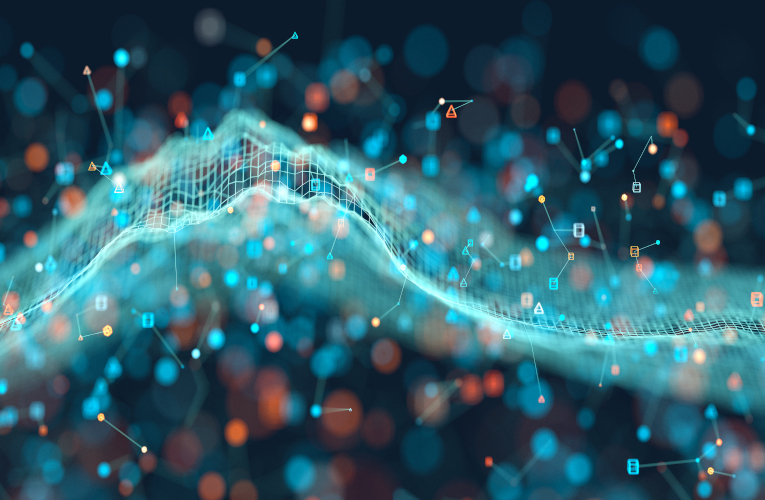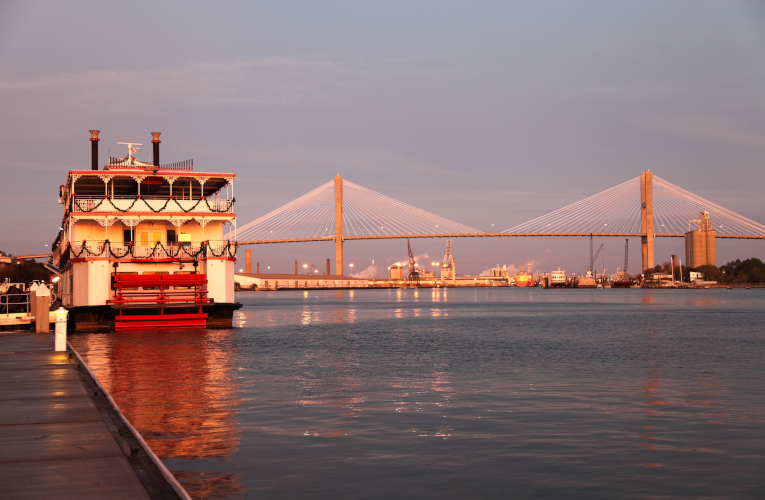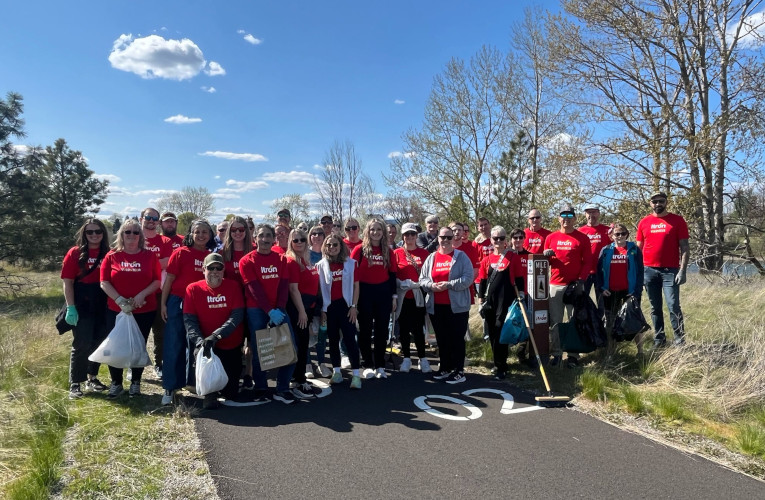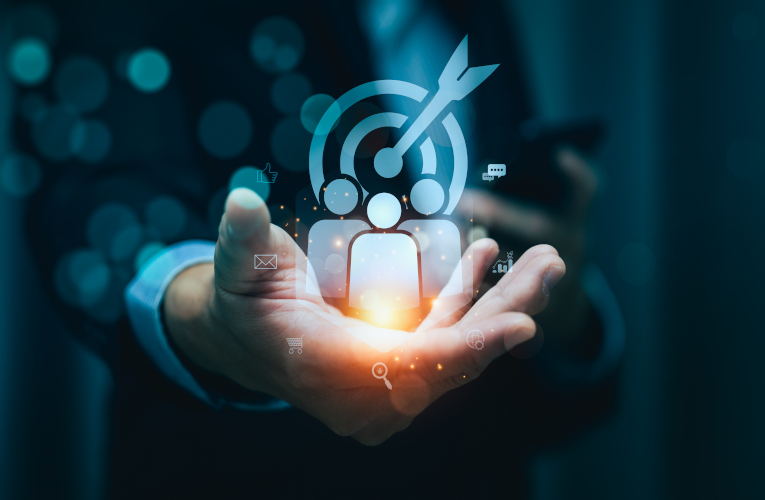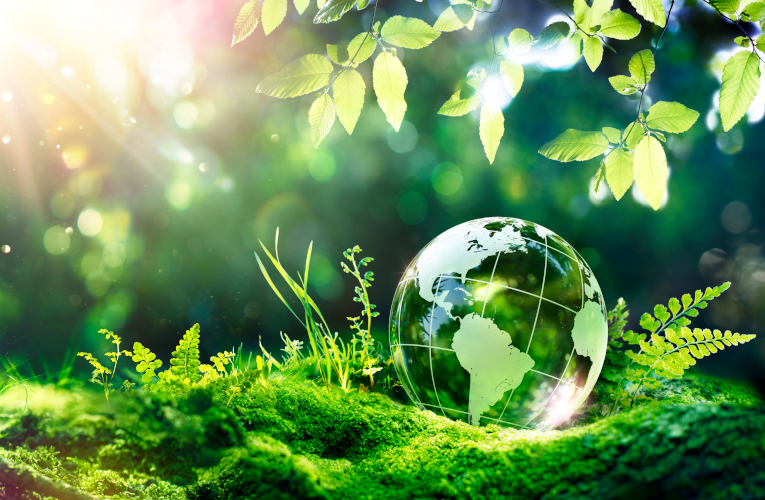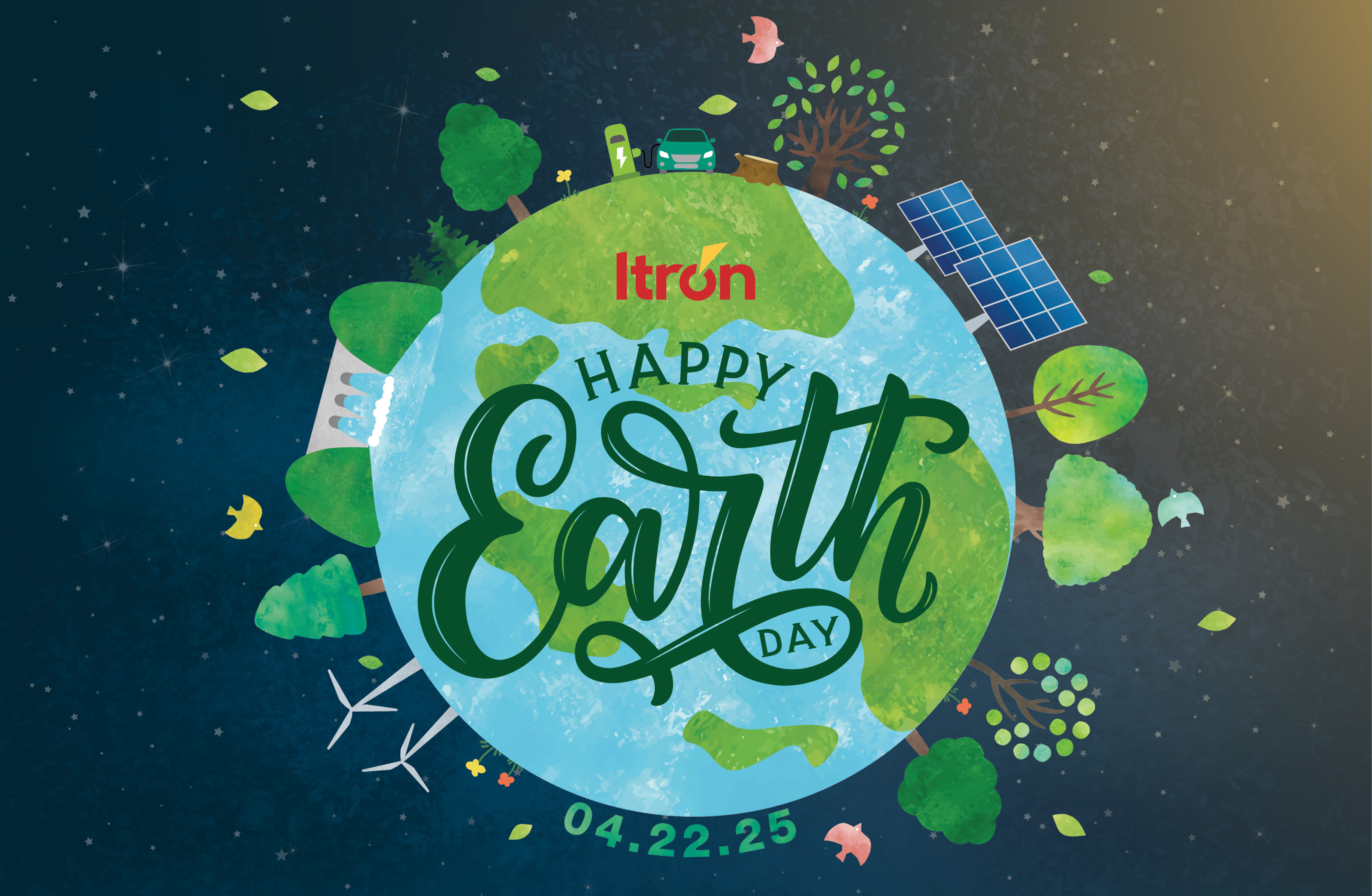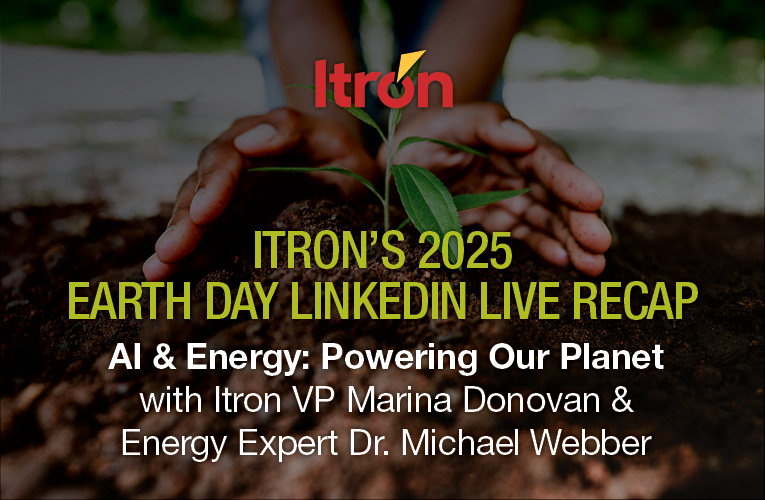
Industry Insights
The Future of Energy, Water and AI: A Conversation with Dr. Michael Webber & Marina Donovan
Every year at Itron, we look forward to Earth Day—a global celebration and powerful reminder of our shared responsibility to protect our world’s most precious resources. This year, we kicked off our celebration with a special LinkedIn Live event featuring our favorite professor and expert on the energy-water nexus from the University of Texas at Austin, Dr. Michael Webber, and Itron’s vice president of global marketing, ESG and public affairs, Marina Donovan. Together, they dove into key topics shaping the future of energy and water, and the role of artificial intelligence (AI) in creating a more resourceful future. They also explored this year’s Earth Day theme, “Our Power, Our Planet,” emphasizing how individuals can make a meaningful impact by integrating sustainability into their daily lives.
If you missed the live event, watch the recording here and check out a brief recap of their conversation below.
Marina: Despite what you may read, the energy and water sectors are more important than ever. With innovation at the forefront, it’s an exciting time to be in the industry and the perfect moment to celebrate Earth Day. Dr. Webber, as an expert on issues impacting energy and water, what is your perspective on the current state of the industry? Are you an optimist or a pessimist?
Dr. Webber: First of all, thank you so much for having this conversation. Earth Day is a great time to stop and reflect on our energy and water systems and our relationship with the environment and surrounding ecosystems. If you do, you’ll conclude that energy and water are critical to our economic prosperity, ecological health, personal well-being and national security. Without abundant, secure, reliable and affordable energy and water, what do we have? They remain as important as ever.
We’re also at a moment in time with significant changes happening in both industries. These resources are deeply interconnected, so changes in energy will inevitably affect water. Environmental shifts, such as floods and droughts, and advancements in energy technologies, are transforming the landscape. Everything is changing, and it’s an exciting time if you’re passionate about energy and water like I am. Ultimately, I’m optimistic about the future of energy and water. We have a real chance to make positive strides if we collaborate and keep the momentum going.
Marina: The role of AI is a trending topic. When used correctly, it can unlock smarter, faster solutions to today’s most pressing energy and water challenges. How are you seeing AI play a role with utilities?
Dr. Webber: AI is making headlines for its power consumption, particularly in data centers, positioning it as an accelerant to existing energy and water challenges. This is scary for people for many reasons—it’s new, different and changes quickly. However, AI holds the promise of solving complex problems more efficiently. There are so many energy use cases where AI improves efficiency, reduces waste and cuts costs. While it feels like a strain today, AI should ultimately save us more power and water in the long run. The lack of synchronicity on the long-term benefit versus the immediate impacts is catching people by surprise, but in the end, AI is another valuable tool in our toolbox for improving the system.
Marina: How can individuals make a difference on Earth Day and every day?
Dr. Webber: Earth Day is a day to remember that there are 8 billion decision makers around energy and water, each with a role to play. We can all make small changes, like being conscious of the appliances we leave on, the heating and cooling temperature we set our thermostats and choosing to walk instead of drive. These hourly and daily decisions impact our energy and water consumption, and we should be mindful of that.
We also make significant decisions every decade or so, such as the type of car we drive and the kind of house we live in. These include the appliances we use and whether our home is close enough to work for us to walk, bike or scoot instead of drive. While these choices may seem trivial in the moment, they add up over time.
Collectively, we can come together at the community or municipality level and influence decisions on building code efficiency, urban planning, city layout and more. It’s not just policy makers or corporate executives who make a difference—it’s us, the consumers. By starting with our own decision-making at home, we can create substantial change at scale.
Earth Day may be over, but our collective journey toward a more sustainable future continues year round. Every choice we make shapes the future of our planet, and together, we have the power to create a more resourceful world—one action at a time.
Learn how Itron customers are driving sustainability in our Earth Day blog and explore education programs empowering the next generation of innovators here. Thanks for celebrating Earth Day with us!
